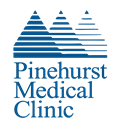February 24th, 2023

Healthy Belly, Healthy You – Get Screened for Colon Cancer
Ravikant Varanasi, MD, AGAF, Fellow of the American Gastroenterological Association
March is National Colon Cancer Awareness month, so there is no better time to discuss the importance of colon cancer screening to prevent the second deadliest form of cancer in the United States.
In 2023, it is estimated that over 150,000 Americans will be diagnosed with colorectal cancer, and tragically over 50,000 of them will die. What is staggering is that most of these deaths are avoidable. With proper screening and medical care, most colon and rectal cancers can be prevented before they are formed. In fact, the risk of developing colon cancer can be reduced by 90% through regular screening.
Think about that for a moment. Many deadly cancers, such as breast, prostate, and lung cancers, can be detected early with proper screening. But colon cancer is the only cancer that can be PREVENTED at the same time screening is performed.
Colon polyps, benign clumps of cells on the inner surface of the colon, are common in the American adult population. As these cells grow and mutate, the growths can spread deeper into the colon wall and become malignant. This process usually takes several years, and this window of opportunity makes colon cancer screening highly effective. Though most polyps will never turn into cancer, most cancers start off as benign polyps that at one point could have been removed.
The lifetime risk for developing colon cancer is about 1 in 23 for Americans, and both men and women are at risk. For unclear reasons, the rate of colorectal cancer is increasing rapidly in younger people. Individuals born around 1990 have twice the risk of colon cancer and four times the risk of rectal cancer than those born around 1950. Risk factors for colon cancer include eating red/processed meats, tobacco use, obesity, physical inactivity, abdominal radiation, inflammatory bowel disease. In addition, family history and race are risk factors, as genetics can play a significant role and African Americans have the highest rates of sporadic, non-hereditary colorectal cancer in the United States.
The American Cancer Society recommends everyone age 45 and older be screened for colon cancer. A few years ago, the starting age for screening was changed to 45 from 50 because of the alarming increase in colon cancer in the younger population (45 is the new 50!). For some people with risk factors such as a family history, a screening exam even earlier may be appropriate. Discuss your personal medical and family history with your primary care provider so you can learn when it would be best for you to begin colon cancer screening.
Several different screening tests have been approved by the U.S. Preventive Services Task Force, a national group of experts in disease prevention. Colonoscopy, the most performed gastrointestinal procedure in the United States, is the gold standard of screening. Noninvasive tests such as the Fecal Immunochemical Test (FIT) and Multitarget Stool DNA test, better known as Cologuard®, are also available. It is important to understand the differences between them to know which type of screening is most appropriate for you.
A colonoscopy is a one-step test, where the patient is fully sedated, comfortable, and unaware of the procedure being done. The colon is thoroughly inspected for colon polyps, and other abnormalities such as diverticulosis, inflammation (colitis), and hemorrhoids can also be discovered if present. Any polyps identified are removed so there is no need for a second procedure. If the colonoscopy is normal, it is required only once every ten years in average risk individuals. It is the only test recommended for people at higher-than-average risk for colon cancer.
When having a colonoscopy, the quality of the exam is critically important. The colon is a 3-dimensional structure with folds and bends and visualization of the entire colon can be challenging. There are two major factors that impact the exam. First is the quality of the bowel preparation. No one enjoys preparatory dietary restrictions or purging the colon with laxatives, but finding polyps can be difficult when residual stool is present in the colon. The second is the quality of the doctor performing the exam. It is important to have the procedure performed proficiently by a physician with the proper training and experience. Not all colonoscopies are the same.
Noninvasive tests are two-step tests. FIT is a stool-based test that checks for the presence of blood. If blood is detected in the stool sample, a colonoscopy is required to check for any pathology that may have caused blood loss. It is important to remember that not all polyps will result in microscopic blood in the stool, and the stool sample that is submitted is only checking for blood at one moment in time. If FIT is the chosen method for screening, it must be done annually.
Cologuard® has become a common choice for colon cancer screening, largely made popular by amusing television commercials. This test assesses an entire stool sample for the presence of abnormal DNA mutations associated with colon cancer and precancerous polyps, as well as the presence of microscopic blood. A positive test result requires a follow-up colonoscopy. Studies have shown that Cologuard® can detect over 90% of colon cancers, but it is less effective at detecting precancerous polyps and over 10% of positive tests can be false positives. Cologuard® testing is recommended every three years.
Because of the Affordable Care Act, screening tests are now covered by health insurance. That means that you could have a screening colonoscopy, FIT, or a Cologuard® potentially free of cost. The choice of test is between you and your primary care provider. However, it is important to remember that if you have a positive FIT or Cologuard®, your insurance company will consider the follow-up colonoscopy to be a diagnostic procedure (not screening), and the cost of the procedure may be applied to your copay and/or deductible.
Ultimately, the decision about how to be screened for colon cancer is personal and should be made in consultation with your health care provider. But there is no question that colon cancer screening is vitally important. Colon cancer can strike anyone, from celebrities like Chadwick Boseman and Pelé to family members and neighbors. It develops silently, so an absence of symptoms should not discourage screening. And no matter how unpleasant the bowel preparation may seem, it is nothing compared to a diagnosis of colon cancer. Get screened for colorectal cancer. It will give you peace of mind, and it just may save your life.
Back





